(Click to enlarge photos.)
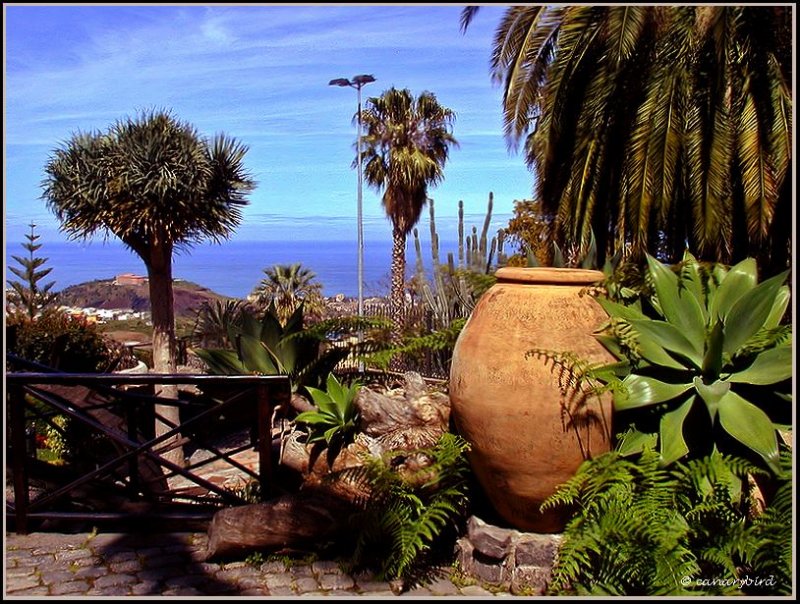 View from Casa Lercaro
View from Casa Lercaro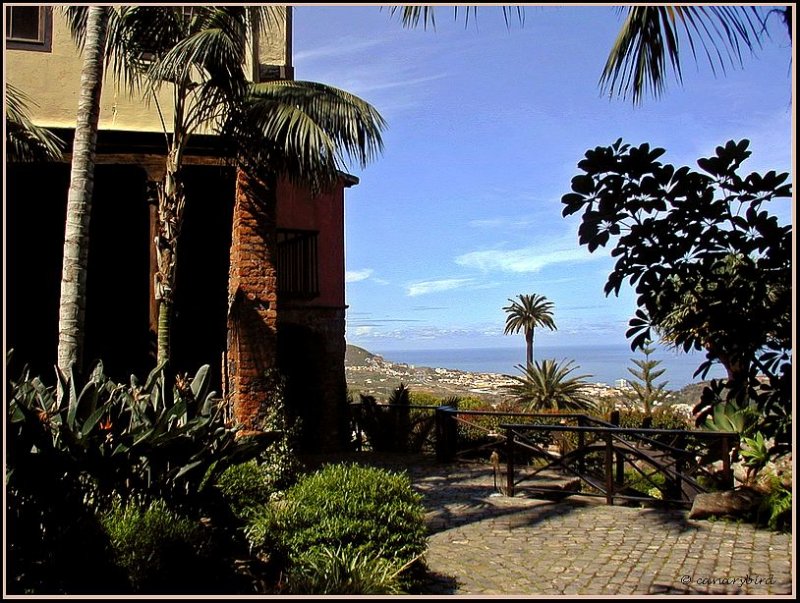 View over Puerto de la Cruz from Casa Lercaro
View over Puerto de la Cruz from Casa Lercaro Street in La Orotava
Street in La Orotava One of the attractions there is La Casa de Los Balcones (link to the website) or the House of Balconies, built in 1632, which is a magnificent example of Canary architecture. It is a three storied building with an interior patio lined with beautifully carved wooden balconies, which now houses a museum and several shops selling handmade goods and souvenirs.
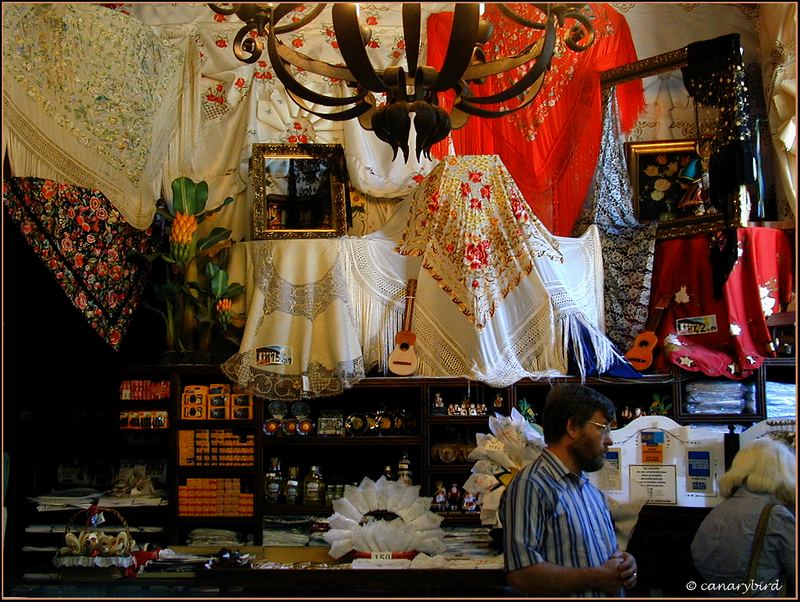 Embroidered Shawls and Tablecloths
Embroidered Shawls and Tablecloths Patio in Casa de Los Balcones
Patio in Casa de Los BalconesAcross the street are two more beautiful buildings: Casa Lercaro and Casa del Turista, housing yet more examples of local handicrafts and artifacts for sale to visitors. There is also a sand painting artist or alfombrista displaying the technique which is used in the yearly celebrations of Corpus Christi of drizzling fine volcanic natural coloured sands onto the ground to create images, usually of a religious nature. These sand paintings, called Las Alfombras de Corpus Christi, or Corpus Christi carpets employ a technique passed from one generation to another.
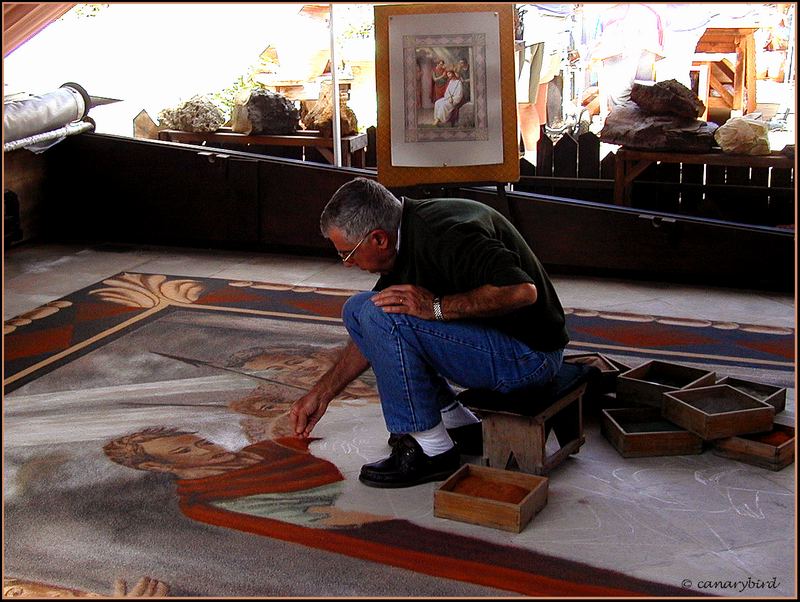 Sand Carpet Artist in Casa del Turista
Sand Carpet Artist in Casa del TuristaAnother class of alfombras created during the celebrations of Corpus Christi are the flower carpets, created early in the morning from fresh flower petals, milled green heather branches and coloured sands.
Formed on the roped-off streets of La Orotava over sketches chalked directly onto the cobblestones, they are a magnificent art form, created by family and cultural groups, again depicting religious scenes and floral patterns. Later I will make an entry dedicated to these floral carpets, including the photos I have taken of them.
 Flower Carpet of Corpus Christi
Flower Carpet of Corpus ChristiStone water distillers are an interesting sight and are still used in some places, apart from their decorative value, to purify water. Some are kept in a pine wood lattice-doored structure and are a most attractive element in a Canary patio. Water is poured into a top stone filtering vessel from where it slowly drips down into a stone container below, which keeps it cool.
 Stone Water Distiller in Casa de Los Balcones
Stone Water Distiller in Casa de Los BalconesHere below is another shop seen in one of these three buildings. This charcuteria or delicatessen, sells sausages, cheeses, breads and specialty condiments typical of the islands.

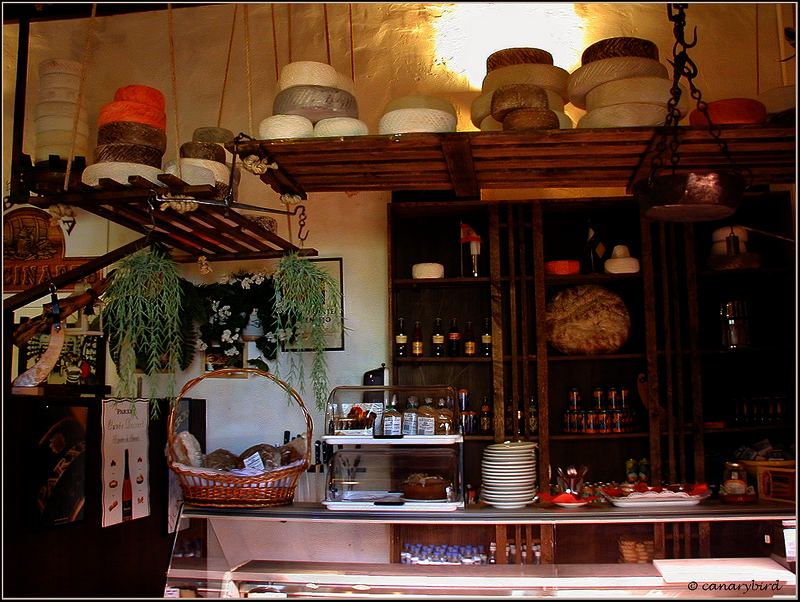 Charcuteria or Delicatessen
Charcuteria or DelicatessenI liked the look of this shop with the red interior walls, selling glassware and porcelain as well as lamps and souvenir objects.

And finally, here is one of the large old wooden grape presses which were used to make the Canary Island wines which nowadays are winning international prizes. This one is located on the grounds of La Casa de Los Balcones.

I took these photos a few years ago while on an excursion to La Orotava with my English friend Anne.
Next: The Gofio Mill in La Orotava.

1 comment:
Brings back many memories, I would love to wander around here with Dave and the kiddies, Mallorca too!
Post a Comment